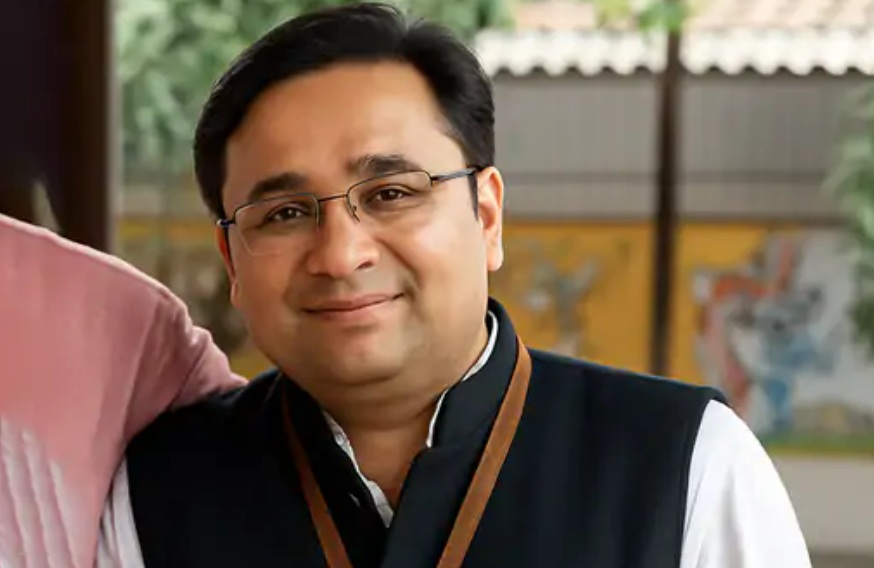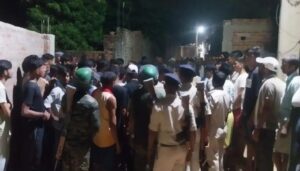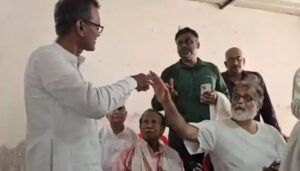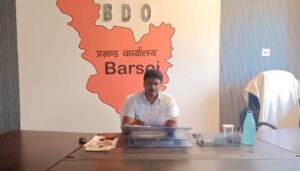2018 Murder of Gunjan Khemka: A Chilling Prelude to the Killing of Industrialist Gopal Khemka

Patna: The cold-blooded murder of prominent businessman Gopal Khemka outside his residence in Patna on Friday night has revived chilling memories of the 2018 daylight murder of his elder son, Gunjan Khemka, in Hajipur. The striking similarities in both killings—planned ambushes, targeted headshots, and use of motorcycles—have raised serious concerns about repeated attacks on the influential Khemka family.
The 2018 Assassination of Gunjan Khemka
On 20 December 2018, Gunjan Khemka, a well-known BJP leader and industrialist, was shot dead in broad daylight outside his cotton factory in Hajipur’s industrial zone. As he arrived in his vehicle, criminals opened indiscriminate fire, with bullets shattering the car windows and striking Gunjan near his heart. He died on the spot, while his driver sustained injuries after being shot near the waist.
Police later concluded that the killing bore the signature of trained sharp-shooters, given the accuracy and speed of the attack.
Extortion Threats and Mysterious Calls Before Murder
Gunjan’s wife had received threatening calls from an unknown number in July 2018, five months before the murder. The caller demanded extortion and hurled abuses. Though an FIR was registered at Gandhi Maidan police station and a suspect was later detained, police termed the accused a mentally unstable individual and ruled out any connection with the later murder.
Delayed Investigation and Early Dead Ends
The probe remained stagnant for over 45 days after the murder. Then-ADG Headquarters Kundan Krishnan had publicly acknowledged that no substantial evidence had been recovered, and no arrests were made during that period. This lack of progress deeply frustrated the family and sparked political reactions.
Motive: Dispute Over Prime Land
According to investigators, the motive behind Gunjan’s killing was a dispute over a 14-bigha land parcel located near a four-lane highway between Hajipur and Sonpur. Two distinct conflicts emerged:
- A direct land ownership dispute with local mafias.
- A commission-related disagreement with brokers who facilitated the land deal.
Sources claimed that Gunjan had tried to settle the matter using local muscle power, which further escalated tensions and may have led to his murder.
Criminal Plot: Surveillance and Execution
The Vaishali Police SIT eventually arrested Abhishek Kumar alias Mastu Verma and his associate Rahul Anand alias Cheeku, both with criminal records. Mastu reportedly had close links to notorious gangster Arun Kumar Singh, and they had both been eyeing the same plot of land that Gunjan sought to acquire.
Investigators revealed that Mastu had planted an informer near the Khemka residence in Patna’s Gandhi Maidan area. This individual monitored Gunjan’s movements and provided real-time updates, allowing the killers to plan the attack with precision.
ADG Kundan Krishnan had confirmed that Mastu and his gang were tracking Gunjan’s phone calls and visits, particularly in connection with land near Mahua’s biscuit factory.
A Family Targeted: Brother Also Attacked
Two years prior to Gunjan’s murder, his younger brother Gaurav Khemka—now a doctor at IGIMS—had also survived a gun attack. That incident, however, was linked to a personal dispute involving a woman, which later resolved after Gaurav’s marriage. Despite early speculation, police ruled out any connection between the two incidents.
Political Outrage
Gunjan’s murder drew condemnation from several political leaders and parties. Pappu Yadav’s Jan Adhikar Party had organized protests demanding swift justice and an end to what was called the “land mafia’s terror” in Bihar. However, critics argue that even high-profile political pressure failed to bring the masterminds to full justice.
A Pattern Repeating Itself?
With the murder of Gopal Khemka now adding to the family’s tragic history, investigators are re-examining old threats, property disputes, and unresolved motives from the past. The fact that both father and son were gunned down in similar styles, seven years apart, has raised fears that a coordinated and persistent threat loomed over the Khemka family for years.
As the Special Task Force (STF) joins the investigation into Gopal Khemka’s killing, the business and political communities in Bihar await answers—not just about who pulled the trigger, but who enabled a culture of impunity that allowed this to happen again.
With two murders in one family, and connections to real estate and extortion networks, the case now represents more than just personal loss—it has become a symbol of the challenges Bihar faces in curbing organized crime.






